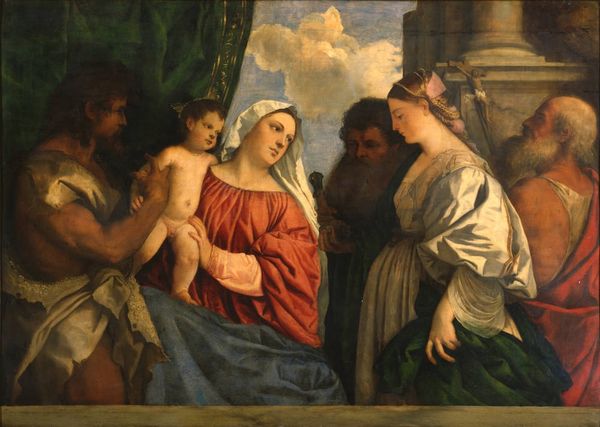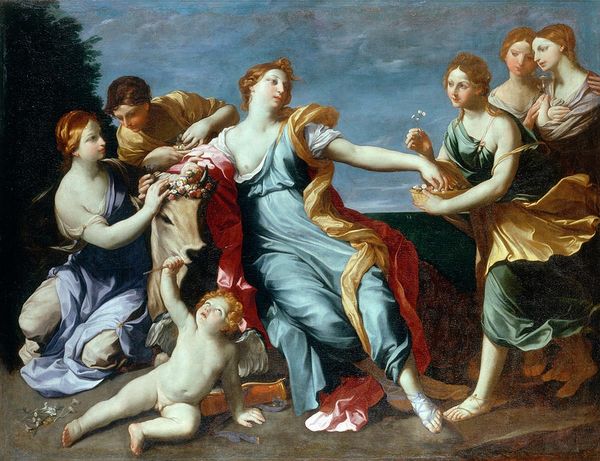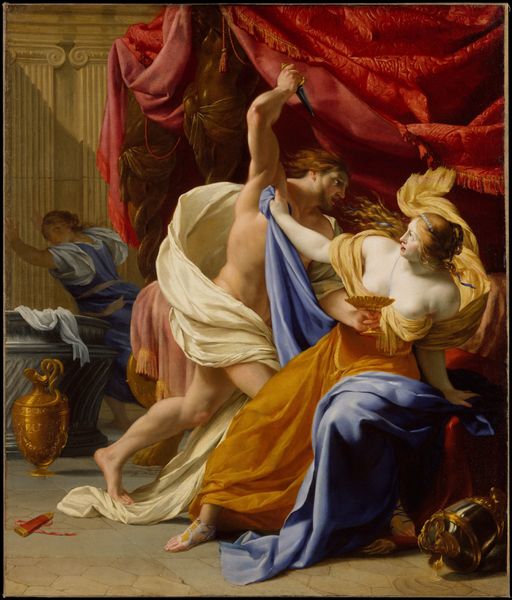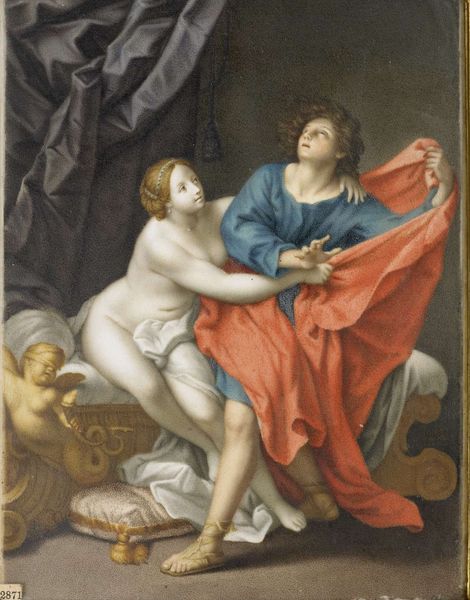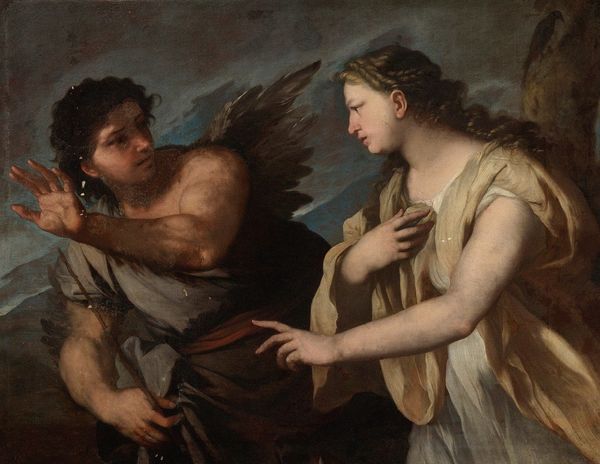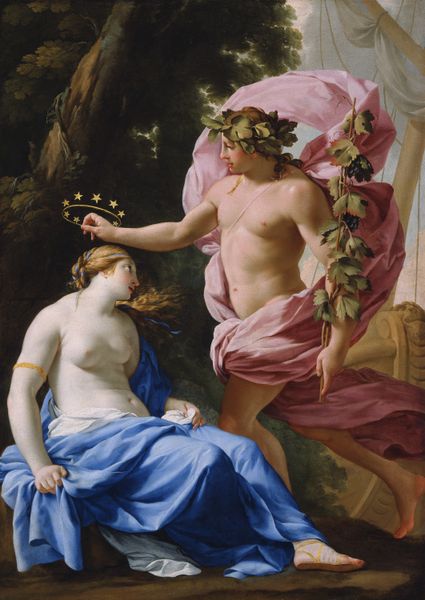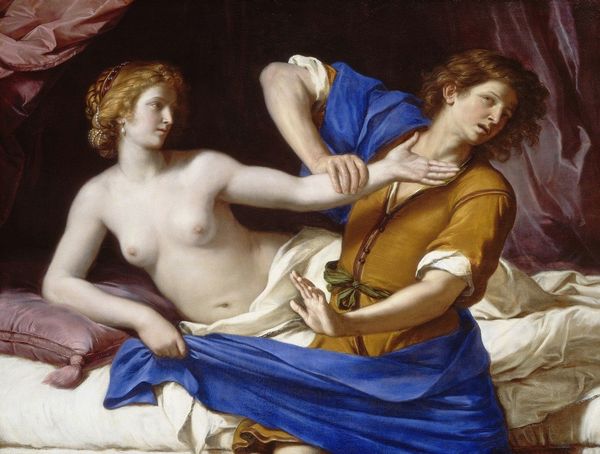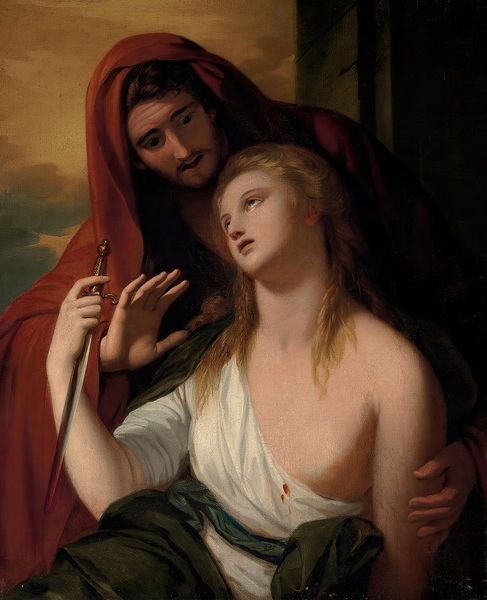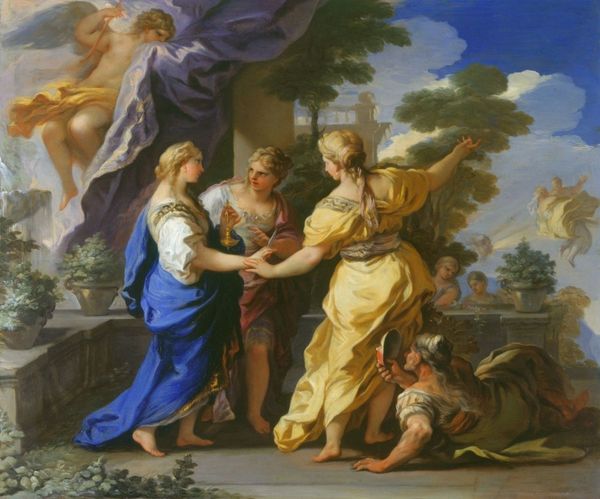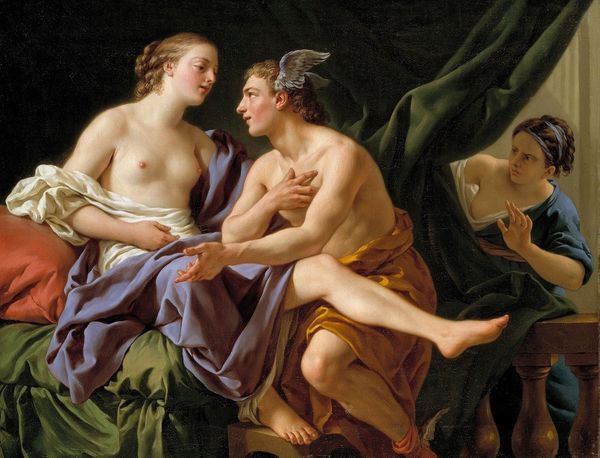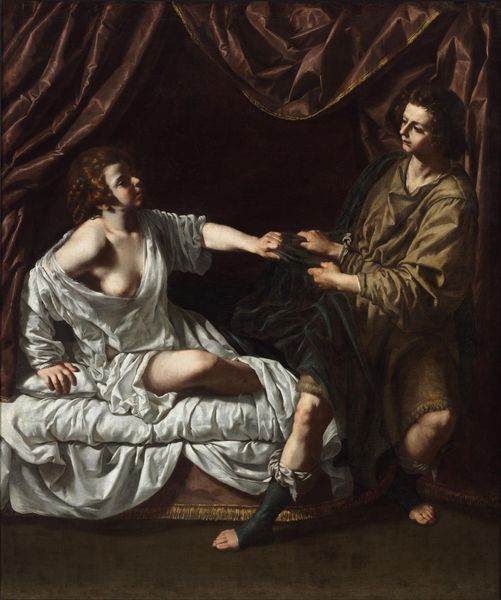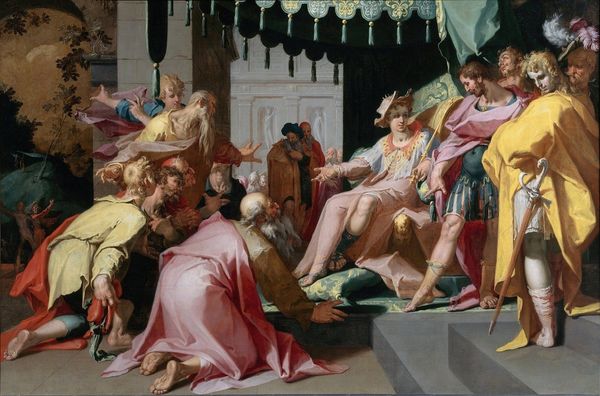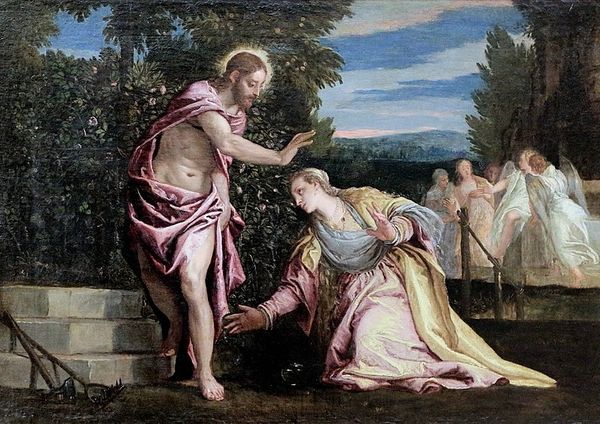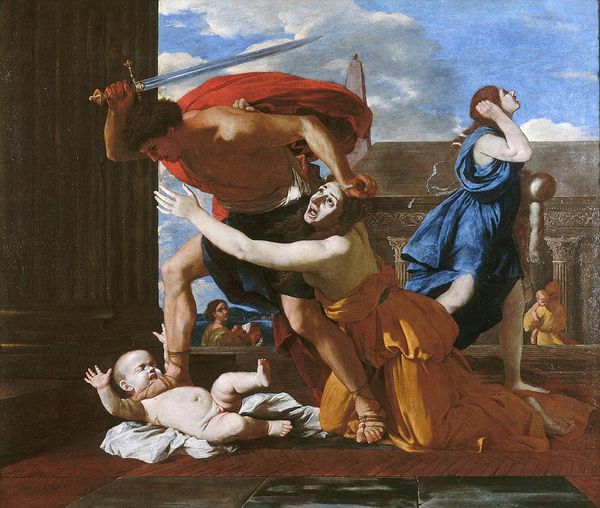
painting, oil-paint
#
narrative-art
#
baroque
#
painting
#
oil-paint
#
figuration
#
oil painting
#
underpainting
#
history-painting
#
erotic-art
Copyright: Public Domain: Artvee
Guido Reni painted "Joseph and Potiphar's Wife" sometime in the early 17th century, during the Baroque period in Italy. The painting depicts a scene from the Book of Genesis, where Joseph, a slave in the house of the Egyptian official Potiphar, is being seduced by Potiphar's wife. Reni's painting embodies the visual codes of its time, with its dramatic lighting, theatrical gestures, and idealized figures. It reflects the influence of the Catholic Church, which was a major patron of the arts during the Baroque period. The Church used art to promote its teachings and values, and Reni's painting reinforces traditional ideas about virtue, temptation, and the dangers of female desire. Historical resources, such as letters and documents from the period, can offer insights into the social and cultural context in which Reni's painting was made and its cultural meanings. By understanding the historical context, we can gain a deeper appreciation of the painting's significance as a product of its time.
Comments
No comments
Be the first to comment and join the conversation on the ultimate creative platform.
